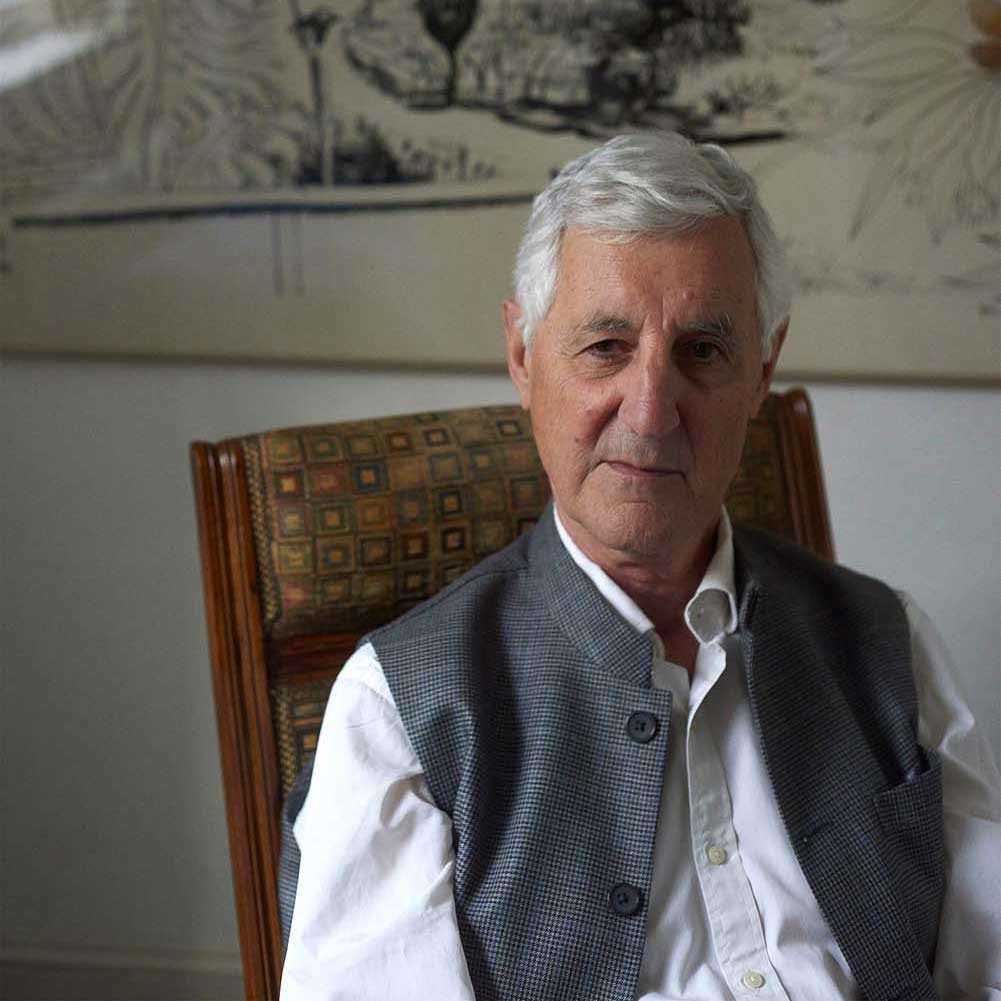Mike Brearley on finding harmony and being respectful of disharmony.
Cricketer-turned-psychoanalyst Mike Brearley (St John’s 1960) says to balance the different sides of our personalities, we need to captain ourselves.

Michaelmas Term, 1960. Mike Brearley (St John’s 1960), classicist and soon to star as Leader of the Chorus in the Greek Play, had a choice to make. Continue with thespian life or… switch to lacrosse (whose matches clashed with rehearsals). Brearley had to decide – and he opted for lacrosse. The play’s director, Dadie Rylands (King’s 1921), a significant figure in the Bloomsbury Group, was not impressed.
“At an early rehearsal, I apologised and said I couldn’t do the play,” remembers Brearley. “And Rylands announced to the cast: ‘This young boy has chosen to play netball for the University.’ He was a nice man, though: he even offered me a smaller part. But there has always been a degree of tension between my two sides: the sports side and what you might call the intellectual side. And I have always been aware of the ways in which people on both sides treat the other side with disrespect – intellectuals being snobbish about mere sporting hearties, and sports people being disparaging of intellect, of thinking about things, and of seriousness about intellectual pursuits.”
Brearley explores how you can reconcile the different sides of your personality in his latest book, Turning Over the Pebbles. His own sporting side, of course, is well known: he was captain of the England cricket team from 1977 to 1981, winning 18 test matches and losing only four. The following year, he was recalled to the captaincy for the Ashes home series and led England to one of their most famous victories. He is regularly name-checked as one of England’s greatest captains.
But after reaching the pinnacle of his sport, Brearley chose to explore his intellectual side, becoming first a philosophy lecturer at Newcastle University and later, in 1985, a psychoanalyst – a profession that he has practised for the past 38 years. And in fact, he thinks the two sides have proven complementary. He recalls his friend, legendary cricket commentator John Arlott, writing a piece about him headed “Physician, heal thyself”.
“He was talking about my cricket; that I could perhaps help some other people better than I could help myself. I thought it was a good point. When we think about captaincy or leadership, we think of someone being at the front, pointing the way to others and telling them what to do. And that is one element of captaincy. But it seems to me that listening to people, finding out what they are like and what they need to do, and how they can help themselves or develop themselves or heal themselves is just as important.”
He remembers the contrast between Ian Botham and Bob Willis, who he says are two of the best cricketers he has played with. On the surface, they seemed similar: extrovert, lively, argumentative and fun. “But one was more sensitive to criticism than the other. I could say things to Botham that were hard for him to take, and it would stir him up into more action or more aggression, which perhaps was what was needed at the time. I could say things that he didn’t want to hear about his batting and he might disagree or argue, but he would then think about it and come round. Whereas if I was a bit too caustic to Bob, it would make him less confident rather than more confident. It’s about knowing what makes someone tick.”
Just like a team, he says, an individual has different players within the self. “As with sports people and intellectuals, each side tends to put the other down and you feel like you are stupid or to blame for having this apparently alien thought or attitude. We all have an indulgent side, a playful side, a serious side, a work ethic, a superego or a harsh conscience.”
And just as a good captain must work to reconcile those different sides, we can learn to captain ourselves. “You nudge yourself, rather than force yourself. It’s a slightly different place, a different orientation, a questioning of one’s way of being in some aspect. There is always more to do. One of the things I like about working with patients and working as a supervisor of other analysts or therapists is that you are always learning. For every two steps forward you take, there’s going to be one step back. Nothing is ever completely achieved.”
Aristotle had it right, says Brearley, with his theory of balancing or reconciling different attitudes, each of which is part of ourselves, and necessary. “He spoke about the morally good person and the happy person. The Greek word for happy is somewhere between ‘morally good’ and ‘fortunate’. Having good fortune is a person who can keep things in balance within the self. It’s about finding harmony and being respectful of disharmony. Breakdowns can become breakthroughs.”
Mike Brearley OBE captained the England cricket team 31 times between 1977 and 1981, winning 18 and only losing four. He was President of the MCC in 2007-08, and President of the British Psychoanalytical Society 2008-10. His latest book, Turning Over the Pebbles, is published by Constable.







